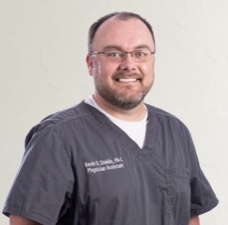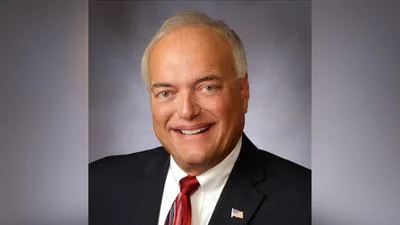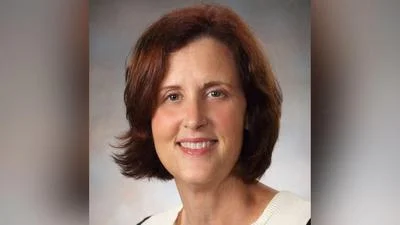According to the Centers for Disease Control, women live on average 81 years, whereas men’s lifespans are generally shorter by about five years.
While many factors may influence the longevity gap, taking better care of one’s health is arguably a practical thing men can do to live longer, healthier lives.
As June is National Men’s Health Month, Kevin Shields, a physician assistant with Knox Community Hospital, discussed ways to encourage men to prioritize taking care of their health. The truth is, he said, men approach health care differently than their female counterparts.
“Men navigate health care according to what symptom they’re having,” Shields told the Mount Vernon News. “If they have a heart problem, they want to see a cardiologist. They want to get it fixed and be done with it.”
That transactional approach to medicine omits an important aspect of care: prevention.
“Women do tend to lean more toward the preventative approach of not only getting healthy but also preventing chronic conditions from happening in the first place,” he said.
But since resources are equally available to both men and women, Shields ascribes the difference to the mindset men have regarding their health. Asking for help could be perceived as a weakness.
“I think men are very in tune with their bodies, but they just hope the problem goes away or they don’t want to deal with it,” he said. “They’re worried about losing their jobs or not being able to provide [if they get sick].”
Men should be screened for colorectal cancer starting at age 45 – sooner, if there is a strong family history of the disease. For prostate cancer, PSA tests should start at age 55. For routine tests to measure cholesterol, diabetes and high blood pressure, age 35 is a good benchmark.
According to Shields, the most important health tips for men include getting regular exercise, pursuing a healthy diet, limiting alcohol intake or stopping smoking, and paying attention to mental health.
“I think the mental health aspect of men's health really needs to be brought to light a little bit more,” he said. “The emotional and behavioral health aspect of everyone's care can take a toll physically on people.”
He said the longer anxiety, depression and other mental health issues are left untreated, the more negative impact they can have. The reluctance men have in getting a checkup can be more intense when mental health is involved.
“It’s hard to get past the stigma of being the protector and the provider,” he said. “It's very difficult to get somebody to admit they need help and seek treatment for it.”
Shields counsels women to help the men in their lives to seek care for both mental and physical problems by reminding them of what’s at stake.
“I think probably the biggest thing they could do is put it in perspective somehow as far as, wanting to be around for your kids to graduate college and you want to be able to see your grandkids,” Shields said.
Men can call Knox Community Hospital at 740-393-9000 and be connected with a health care provider.







